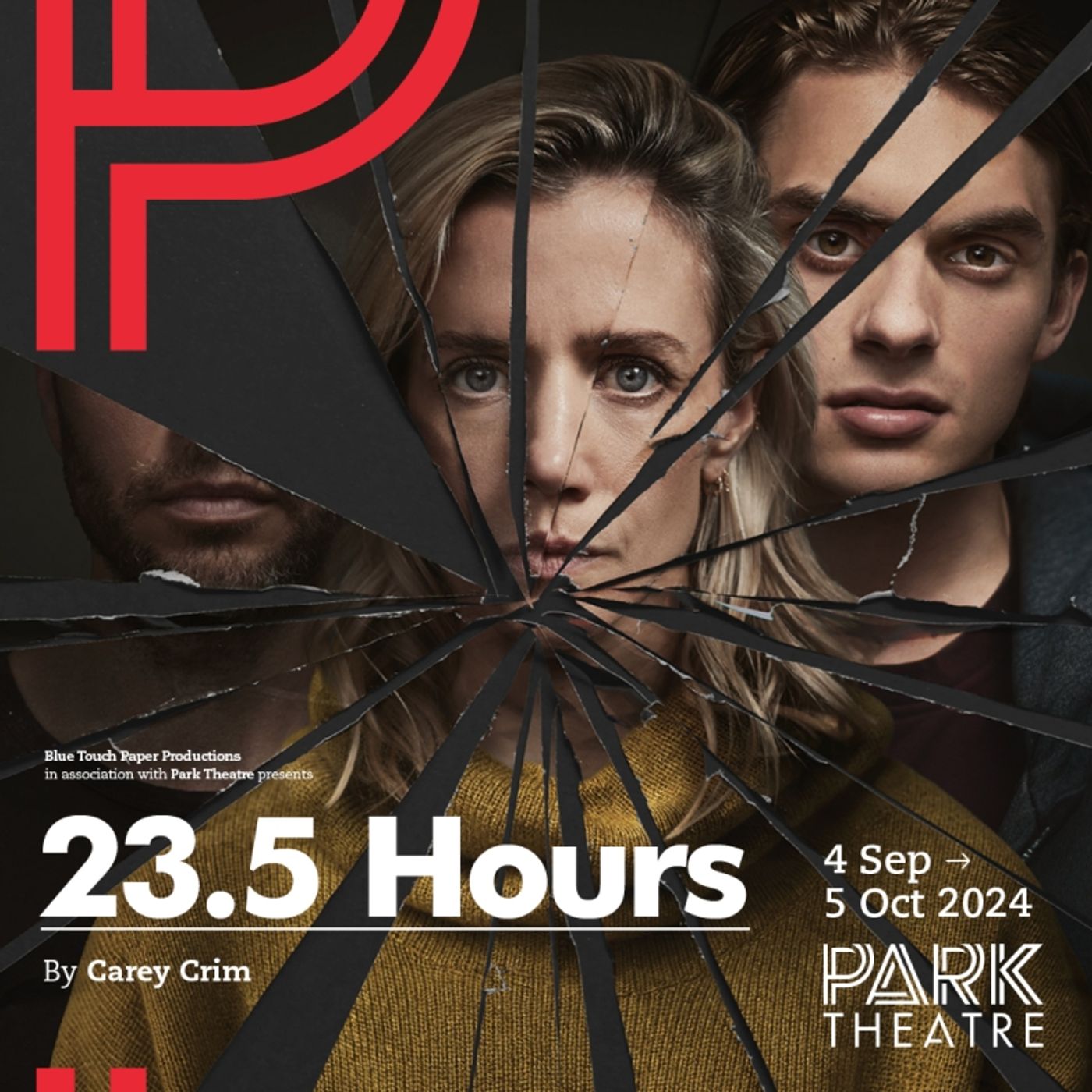Guest Blog: Director Katharine Farmer on Directing Different Perspectives of Trauma and Healing in 23.5 HOURS at the Park Theatre
'My experiences with both 23.5 Hours and Never Not Once have reinforced my belief in the power of theatre to tackle difficult subjects'

As a director, I've had the unique experience of working on two powerful plays by Carey Crim that explore the aftermath of sexual abuse from starkly different angles. As I prepare for the European premiere of 23.5 Hours at Park Theatre, I'd like to share some insights into the challenges and revelations that come with bringing these contrasting perspectives to life on stage, and why I was drawn to telling both stories.
My journey with 23.5 Hours began back in 2012 when I first encountered the play as a reader for Rubicon Theatre Company. The play was selected for development, and ended up having a rolling world premiere in 2014 under a different title that I was lucky enough to shadow. Myself and the Artistic Director of Rubicon went on to co-direct the play in 2016 at the Royal Manitoba Theatre Centre in Canada. Even then, the play felt ahead of its time in addressing the subtle dynamics of grooming and abuse of power. Now, as I direct the play for British audiences eight years later, I'm struck by how the world has caught up to its themes, particularly in a post-#MeToo context.

23.5 Hours follows a teacher returning home after serving time for crossing a line with a high school student. It’s told from the perspective of his wife as she grapples with trust and trying to come to terms with her own experiences.
Bringing this narrative to life presents a unique challenge: how do we portray the experiences of the perpetrator's family, particularly his wife and son, without inadvertently excusing his actions? We're constantly balancing on a knife's edge. On one hand, we need to show the very human struggle of a family trying to rebuild. On the other, we must ensure that the gravity of the husband's actions, and the experiences of the survivor, is never downplayed or justified.
Instead, the play explores the grey area: how past experiences shape our perceptions, confronting uncomfortable questions about patterns of behaviour and the abuse of power by someone in a position of trust. Despite its huge subject matter, the play is about the delicate nature of trust and forgiveness, justice and punishment, and the long-lasting impacts of betrayal.
In contrast, my experience directing Never Not Once at Park Theatre in 2022 offered a different perspective to how one family is affected by a sexual offence. Written in response to the #MeToo movement, this play told the story of a woman who was raped and goes on to raise the child conceived from that assault. The narrative unfolds as her daughter tries to find her biological father, only to discover the truth about her conception.
Directing Never Not Once allowed us to dive into the experiences of survivors. Through this play, we explored themes of identity, self-determination, and the idea that we are not defined by our origin stories. This play was much more black-and-white, as the lines between good and bad were less blurred. Never Not Once allowed us to channel our anger and hope in equal measure, whereas 23.5 Hours forces us to look beyond and sit in uncertainty. As a result, we find ourselves grappling with uncomfortable empathy, asking ourselves difficult questions like: can someone be a loving husband and father, and also commit a terrible crime?
In a world that's become more aware of issues like grooming and the subtler forms of abuse, 23.5 Hoursoffers a perspective that can be at times uncomfortable and necessary. As we move forward in our rehearsal process, we're constantly thinking about how we present both sides of the argument, and present subtle abuses of power in a way that resonates with audiences. These questions don't have easy answers, but that's precisely what makes theatre such a powerful medium. It allows us to sit with discomfort, to explore grey areas, and to challenge our preconceptions.

Photo Credit: Rich Lakos
In the end, my experiences with both 23.5 Hours and Never Not Once have reinforced my belief in the power of theatre to tackle difficult subjects, and the beauty of Carey’s writing. Told through different lenses, Carey’s plays invite audiences to engage with complex issues in a nuanced way. It's not about providing easy answers, but about fostering empathy and understanding in an increasingly complex world.
As we bring 23.5 Hours to Park Theatre, I'm reminded that behind every headline, there are real people dealing with the aftermath of trauma. And it's through understanding these varied perspectives that we can hope to create a more compassionate and just society.
23.5 Hours is at the Park Theatre from 4 September – 5 October
Powered by
|
Videos

